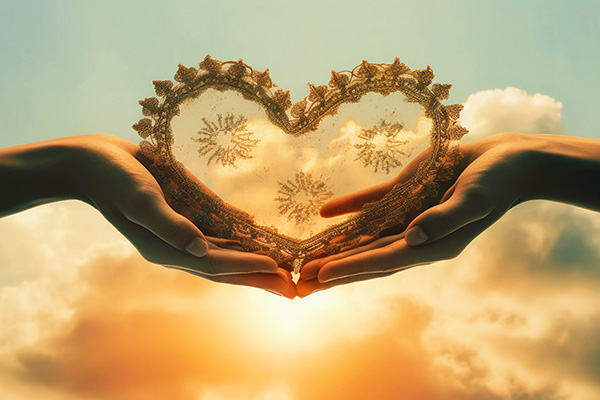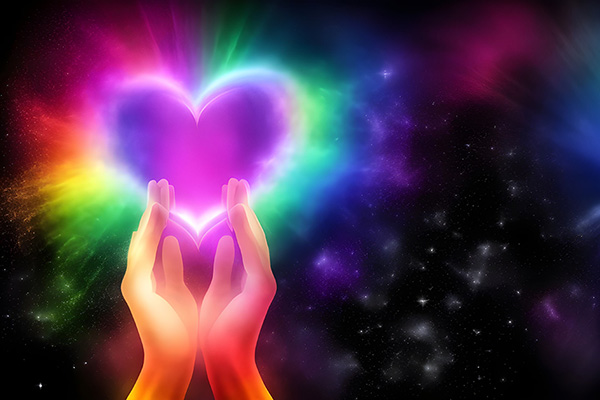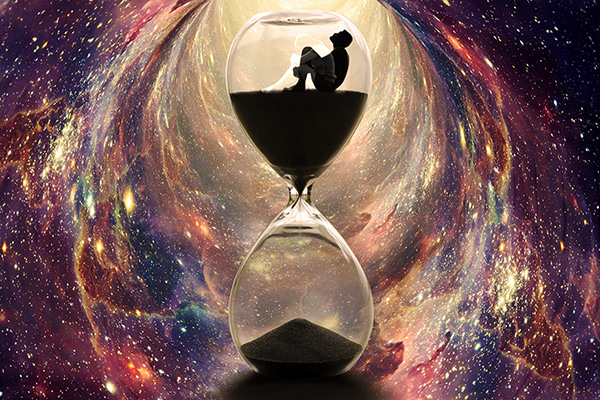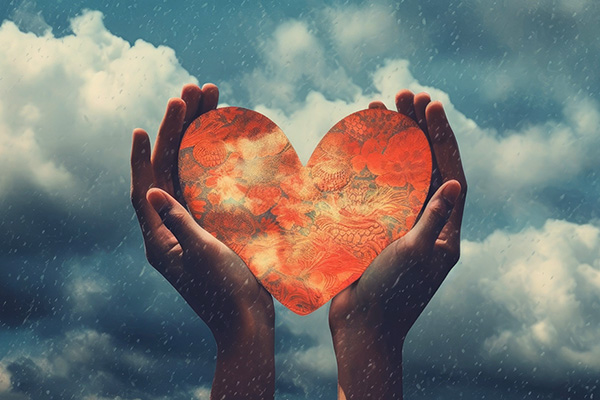empathy
Intuition Can Increase Your Business Success
 In the business world, decisions are often made with the analytical rigor of a chess match. Data analysis, market research, spreadsheets, and earnings reports are the cornerstones of strategic planning and business success.
In the business world, decisions are often made with the analytical rigor of a chess match. Data analysis, market research, spreadsheets, and earnings reports are the cornerstones of strategic planning and business success.
What’s less known is that there’s an equally important, yet underappreciated, key to business strategy and profitable decision-making that can be a game changer for entrepreneurs. This amazing secret ingredient is intuition.
Using intuition to guide your business decisions gives you a unique winning edge in your entrepreneurial journey that fosters creativity, innovation, adaptability, resilience and entrepreneurial responsibility.
Intuition is the ability to know and understand things without conscious rational thought or logical reasoning. It is commonly known as a “gut feeling,” “hunch,” or “sixth sense” that inspires or guides us to act in a certain way without fully understanding why or having any evidence to justify our decision.
For example, when you meet someone for the first time, you may have an intuition about whether or not you can trust them, even though you don’t have any evidence to support your feeling.
Kindness Will Transform Your Life
 Recently, I have noticed that many of my clients are increasingly seeking spiritual guidance for loneliness and feelings of isolation. No matter what their unique circumstances may be, spirit’s response in these matters is always that the solution begins with ourselves.
Recently, I have noticed that many of my clients are increasingly seeking spiritual guidance for loneliness and feelings of isolation. No matter what their unique circumstances may be, spirit’s response in these matters is always that the solution begins with ourselves.
We must be the change we wish to see in our world in order to live a more connected and joyful life. Yes, the world we live in these days can be very stressful and alienating, but that does not prevent us from being more kind and generous to others.
Whether it is a smile, opening a door for a stranger, saying thank you or have a nice day, giving a compliment, or making a small donation to a charity, these small gestures every day have a magical impact on our lives. Spirit says we have chosen to experience this life and it is part of our soul journey to go out and be the difference we wish to see in this sometimes difficult, chaotic world.
Being kind is a powerful daily reminder to ourselves and others of our interconnectedness; that we are all on this journey together. Whether it’s a small gesture of kindness or a grand act of generosity, the ripple effect of compassion creates a chain reaction that inspires others to pay it forward.
Spiritual Self-Care Empowers The Empath
 Because empaths spend a great deal of time experiencing the emotions and feelings of others in a very visceral way, spiritual self-care is especially important for us.
Because empaths spend a great deal of time experiencing the emotions and feelings of others in a very visceral way, spiritual self-care is especially important for us.
Work, family, friends, and intimate relationships, not to mention current world events, can take a toll on anyone, but they can be especially overwhelming for the empath. That’s why it’s important for empaths to be clear about which feelings and emotions are their own and which are coming from external sources.
Empaths are often compared to sponges, as they tend to ‘absorb’ all the energy and emotions around them. Sooner or later, the empath’s energy field becomes overwhelmed with energy imprints, residue, and attachments, and cannot absorb any more.
Instead of adopting a spiritual self-care routine to maintain their health and well-being, some empaths tend to engage in self-destructive behavior or self-medicate with food, alcohol, caffeine, or even drugs in an attempt to find relief. In the worst cases, this can result in a complete breakdown or worse.
It’s obviously wiser and much healthier for empaths to find a more constructive way to recharge their energy and center and ground themselves. Also, bad lifestyle habits will do nothing to shield your aura from outside energies.
How To Thrive As An Empath
 Empaths have the unique ability to deeply experience and understand the emotions of others. While this gift is a wonderful source of compassion, strength, and connection, it also comes with its share of challenges.
Empaths have the unique ability to deeply experience and understand the emotions of others. While this gift is a wonderful source of compassion, strength, and connection, it also comes with its share of challenges.
Living as an empath can be a double-edged sword, as the heightened sensitivity to the emotions of others can lead to emotional exhaustion, boundary issues, and a constant struggle to maintain one’s emotional well-being.
One of the biggest challenges empaths face is emotional overload. Empaths tend to absorb the emotions of those around them, whether it’s joy, excitement, sadness, anger, depression, or fear.
This emotional absorption can be so intense that it can become overwhelming to the empath, leading to feelings of confusion, restlessness, anxiety, emotional exhaustion, and even physical symptoms such as headaches and fatigue.
Managing this constant influx of emotional energy can be mentally and physically exhausting, sometimes leaving empaths completely drained and in dire need of some solitude and self-care.
Envisioning A Better World For All
 More than a century ago, the great Indian sage Paramahansa Yogananda spoke in his teachings and writings about envisioning a better world for all. He believed in the transformative power of individual and collective consciousness and emphasized the importance of spiritual practices such as meditation and self-realization in creating a more harmonious and compassionate world.
More than a century ago, the great Indian sage Paramahansa Yogananda spoke in his teachings and writings about envisioning a better world for all. He believed in the transformative power of individual and collective consciousness and emphasized the importance of spiritual practices such as meditation and self-realization in creating a more harmonious and compassionate world.
Yogananda stressed that true change begins within each individual. He believed that by working on our own spiritual growth and self-realization, we radiate positive energy and higher consciousness that contributes to a more peaceful and loving world.
He encouraged individuals to envision a new world of peace, harmony, and unity. By holding this vision in our minds and hearts, he believed, we could collectively bring it into being. Yogananda promoted the concept of universal brotherhood, which recognizes the interconnectedness of all beings. He encouraged people to look beyond differences of race, religion, and nationality and to treat one another with love, respect, and understanding.
Yogananda also spoke of the power of visualization and positive thinking. He saw prayer and meditation as powerful tools for individual and collective transformation. He encouraged individuals to live with a sense of purpose and to align their actions with higher ideals.
In a modern world filled with challenges and uncertainties, it is indeed essential that we hold on to a common vision of a better future. We must strive to create a world in which every individual, regardless of background or circumstance, can thrive.
The Spiritual Virtue Of Patience
 Patience is considered an essential virtue in most spiritual and religious traditions for several reasons. It is consistent with the core values and teachings of various spiritual paths and belief systems.
Patience is considered an essential virtue in most spiritual and religious traditions for several reasons. It is consistent with the core values and teachings of various spiritual paths and belief systems.
Many spiritual practices emphasize the importance of maintaining a state of inner calm in the midst of life’s challenges. Patience is fundamental to achieving inner peace and serenity. Patience helps us maintain a sense of serenity even in the face of extreme adversity.
Patience also enables us to surrender to the universal flow and accept the divine timing of outcomes for our highest good. We are better equipped to accept the divine plan and trust in the unfolding of events and circumstances as they are meant to be. Patience signifies our belief in a higher power and the universal order of all things.
Through patient introspection and self-reflection, we learn to understand our own thoughts, feelings, and behaviors, which leads to spiritual growth and self-improvement.
Impatience leads to negative emotions such as anger, frustration, and resentment. By practicing patience, we can better control and manage these emotions, which promotes emotional well-being and spiritual harmony.
Without patience, it is also difficult to develop understanding and empathy for others. Being patient with our own flaws and imperfections, as well as those of others, promotes the spiritual qualities of empathy and kindness.
The Empowered Empath
 People are naturally drawn to empaths. They tend to open up and pour their souls out to the empath, instinctively knowing that their secrets are safe and that there will be no judgment or condemnation. This is great, unless you are the empath who is constantly feeling burned out and exhausted from the burden of keeping everyone around you happy, with no one to talk to yourself.
People are naturally drawn to empaths. They tend to open up and pour their souls out to the empath, instinctively knowing that their secrets are safe and that there will be no judgment or condemnation. This is great, unless you are the empath who is constantly feeling burned out and exhausted from the burden of keeping everyone around you happy, with no one to talk to yourself.
I’ve been doing readings on PsychicAccess.com for more than a decade now, and in that time I’ve had the privilege of reading for many people who are born empaths but were unaware of their innate gifts and abilities. They have since grown exponentially in their awareness and have learned to trust what is at the core of their being.
Not only have they become aware of what makes them so different, they realize that they are not ‘crazy’ or ‘too sensitive’ or ‘imagining it.’ They have been told such things all their lives, but now they can trust their very keen intuition and know that they are usually right on the money.
The moment empaths embrace their true, gifted nature, the gut-wrenching anxiety, tension headaches, and other health problems begin to subside. Their confidence soars. It is wonderful to observe this newfound self-empowerment.
But the openness and courage required to do this kind of soul searching is not easy. It takes determination, and it’s not for the faint of heart. Not to mention the difficulty of cultivating the patience required to learn where and when to say what you feel and know. Sensing the outcome of events or relationships, or more importantly, knowing that something is going on with someone before they know it, can be very challenging.